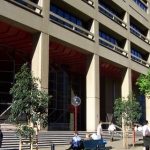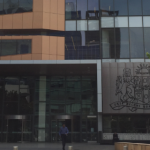Defendant Granted Bail Due to Coronavirus Concerns

As the COVID-19 epidemic unfolds, it’s having a substantial impact on the Australian criminal justice system, from the Local Court all the way up to the High Court of Australia.
NSW District Court Chief Judge Derek Price announced on 30 March that as of April, a number of types of hearings will be suspended, along with a previous halt to new jury trials.
These measures are aimed at curbing the spread of the virus. They include the suspension of all judge-alone trials, along with sentencing hearings, appeals against Local Court decisions, and District Court plea hearings.
As concerns rise over the impact a COVID outbreak could have within Australian correctional centres, the threat the disease poses and the extreme delays in court times caused by virus restrictions, will increasingly be factored into whether a defendant’s bail application is successful.
The first reported bail hearing where COVID-19 was a factor in whether a remanded woman was released back into the community took place on 19 March in the Victorian Supreme Court. The hearing resulted in bail being granted under circumstances that may not normally have warranted it.
Are you sure you don’t have the wrong address? she asked
Victoria police officers executed a warrant on 19 June last year at the home of a woman who lives in Mount Pleasant: the oldest residential suburb in Ballarat. And when police asked if there were any illegal drugs in her place, she responded, “In my room down the hall.”
The police retrieved a swag of illicit substances in the residence, along with cash and drug paraphernalia. The woman was subsequently taken to Ballarat police station, where she was charged and released on bail.
Then, on 19 November, Victoria police executed another search warrant at the woman’s home, and again, located a range of illegal drugs and paraphernalia, along with two Tasers and a flick knife. She was taken to the station, charged and subsequently remanded into custody.
The charges laid against the woman included six counts of trafficking a drug of dependence, seven counts of drug possession, a charge of dealing with the proceeds of crime, committing an indictable offence whilst on bail and possession of a prohibited weapon.
Strict Victorian bail laws
Recent amendments to the Bail Act 1977 (VIC) (the Act) have often been criticised for having resulted in a dramatic rise in the number of accused people being refused bail and remanded into custody, which means they’re detained in prison while awaiting the outcomes of their trials.
At the woman’s bail hearing on 19 March, Victorian Supreme Court Justice Lex Lasry explained that the Act requires those who have been charged with a schedule 2 offence to be refused bail unless exceptional circumstance can be shown.
Schedule 2 offences include drug trafficking and committing an indictable offence whilst on bail, both of which the woman was charged with. So, it was then up to her legal team to prove to the court that there were exceptional circumstances that should lead to release on bail.
Section 3AAA of the Act lists “surrounding circumstances” that can affect bail decisions. These include the seriousness of offending, the prosecution’s case, the accused’s criminal history, any delay in proceedings, and whether time spent on remand would exceed a likely sentence.
Pandemic considerations
His Honour explained that the accused’s criminal defence lawyer was relying on a number of matters to be taken in combination to establish exceptional circumstances. These included her having a place to stay and no prior record. Although, he noted that on her previous bail she’d been slack in reporting to police.
The justice then turned his attention to the matter of delays in court proceedings and the more unusual circumstances relating to the case at hand.
“Since the filing of this application and the affidavit material, the entire community has been overtaken by the eventuality of COVID-19, which the World Health Organisation has declared a pandemic,” his Honour explained.
Justice Lasry further set out that there were a number of COVID-19 prevention measures taking place within the Victorian court system – including the postponement of jury trials – which are likely to dramatically slow down the rate of hearings.
“Further, it is unknown whether there have been any instances of COVID-19 in the prison population,” his Honour said, adding that if an outbreak did happen in a facility, the transmission of the disease would likely occur “at a much greater rate than” it would within the community.
“That will result in a large number of prisoners becoming quite seriously ill, depending on their age and underlying conditions,” Justice Lasry continued. “I appreciate these are matters of speculation to a degree, but the situation is sufficiently urgent to require them to be taken into account.”
The woman’s lawyer submitted that his client was young and healthy, so if she contracted the virus it would be likely she’d recover. However, the lockdown that would ensue if an outbreak occurred in prison could have “substantial effects” upon the remandee going into the future.
Released on bail
“Given the extraordinary circumstances in which we now find ourselves, I have come to the conclusion that an already significant delay will be likely exacerbated by the consequences of COVID-19,” his Honour ruled.
“I am therefore satisfied that exceptional circumstances have been established”.
The Victorian Supreme Court justice released the accused on bail under a number of conditions, which included reporting daily at Ballarat police station, following a 10 pm to 6 am curfew, not leaving the state and appearing back at the courthouse in early April.
In the time of COVID
This is the first bail hearing where COVID-19 has played a factor in the decision to release the accused into the community, but it’s certainly not going to be the last.
In our state, under section 18 of the Bail Act 2013 (NSW), an authority on deciding whether to grant bail can take into account concerns such as “the length of time the accused person is likely to spend in custody” if refused bail, as well as “any special vulnerability ” a person might have.
And both these factors are likely to become more significant as the coronavirus crisis continues.
So, while it’s likely that many will avoid being remanded over this time, advocates are now calling for the immediate release of nonviolent prisoners, in order to lessen their chances of contracting the virus, along with freeing up space inside so those still detained will have less chance of infection too.








